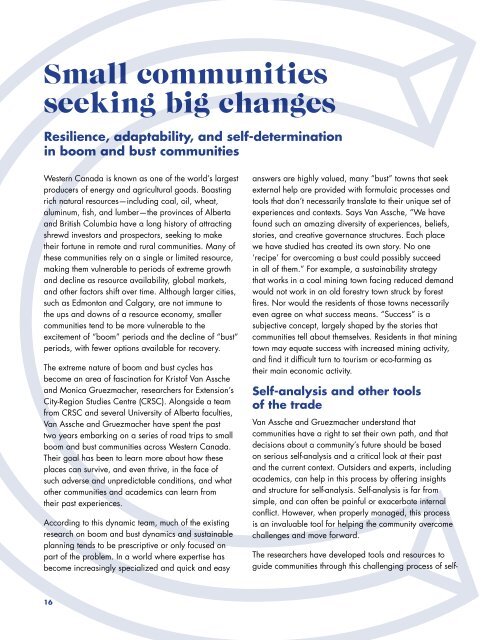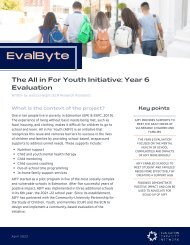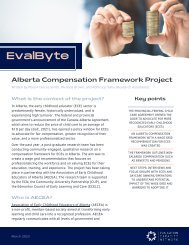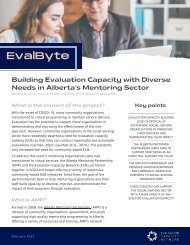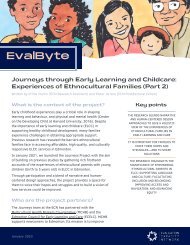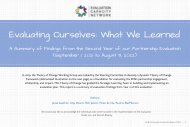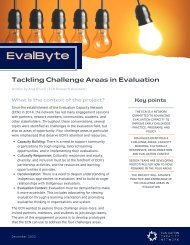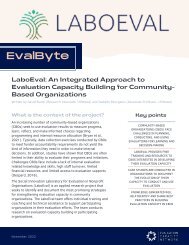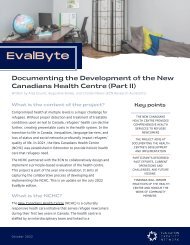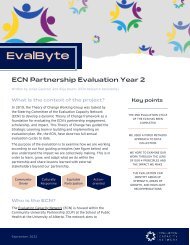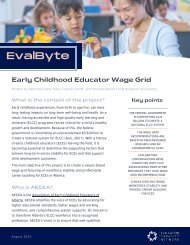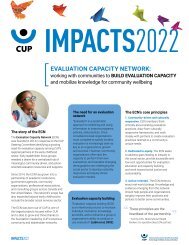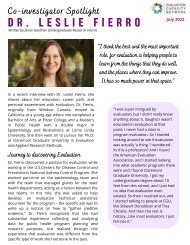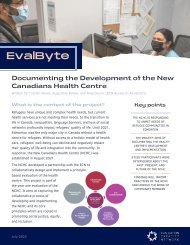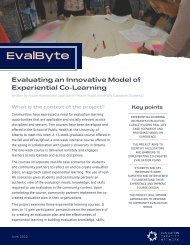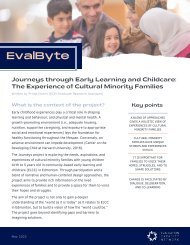Research Report
You also want an ePaper? Increase the reach of your titles
YUMPU automatically turns print PDFs into web optimized ePapers that Google loves.
Small communities<br />
seeking big changes<br />
Resilience, adaptability, and self-determination<br />
in boom and bust communities<br />
Western Canada is known as one of the world’s largest<br />
producers of energy and agricultural goods. Boasting<br />
rich natural resources—including coal, oil, wheat,<br />
aluminum, fish, and lumber—the provinces of Alberta<br />
and British Columbia have a long history of attracting<br />
shrewd investors and prospectors, seeking to make<br />
their fortune in remote and rural communities. Many of<br />
these communities rely on a single or limited resource,<br />
making them vulnerable to periods of extreme growth<br />
and decline as resource availability, global markets,<br />
and other factors shift over time. Although larger cities,<br />
such as Edmonton and Calgary, are not immune to<br />
the ups and downs of a resource economy, smaller<br />
communities tend to be more vulnerable to the<br />
excitement of “boom” periods and the decline of “bust”<br />
periods, with fewer options available for recovery.<br />
The extreme nature of boom and bust cycles has<br />
become an area of fascination for Kristof Van Assche<br />
and Monica Gruezmacher, researchers for Extension’s<br />
City-Region Studies Centre (CRSC). Alongside a team<br />
from CRSC and several University of Alberta faculties,<br />
Van Assche and Gruezmacher have spent the past<br />
two years embarking on a series of road trips to small<br />
boom and bust communities across Western Canada.<br />
Their goal has been to learn more about how these<br />
places can survive, and even thrive, in the face of<br />
such adverse and unpredictable conditions, and what<br />
other communities and academics can learn from<br />
their past experiences.<br />
According to this dynamic team, much of the existing<br />
research on boom and bust dynamics and sustainable<br />
planning tends to be prescriptive or only focused on<br />
part of the problem. In a world where expertise has<br />
become increasingly specialized and quick and easy<br />
answers are highly valued, many “bust” towns that seek<br />
external help are provided with formulaic processes and<br />
tools that don’t necessarily translate to their unique set of<br />
experiences and contexts. Says Van Assche, “We have<br />
found such an amazing diversity of experiences, beliefs,<br />
stories, and creative governance structures. Each place<br />
we have studied has created its own story. No one<br />
‘recipe’ for overcoming a bust could possibly succeed<br />
in all of them.” For example, a sustainability strategy<br />
that works in a coal mining town facing reduced demand<br />
would not work in an old forestry town struck by forest<br />
fires. Nor would the residents of those towns necessarily<br />
even agree on what success means. “Success” is a<br />
subjective concept, largely shaped by the stories that<br />
communities tell about themselves. Residents in that mining<br />
town may equate success with increased mining activity,<br />
and find it difficult turn to tourism or eco-farming as<br />
their main economic activity.<br />
Self-analysis and other tools<br />
of the trade<br />
Van Assche and Gruezmacher understand that<br />
communities have a right to set their own path, and that<br />
decisions about a community’s future should be based<br />
on serious self-analysis and a critical look at their past<br />
and the current context. Outsiders and experts, including<br />
academics, can help in this process by offering insights<br />
and structure for self-analysis. Self-analysis is far from<br />
simple, and can often be painful or exacerbate internal<br />
conflict. However, when properly managed, this process<br />
is an invaluable tool for helping the community overcome<br />
challenges and move forward.<br />
The researchers have developed tools and resources to<br />
guide communities through this challenging process of self-<br />
16


